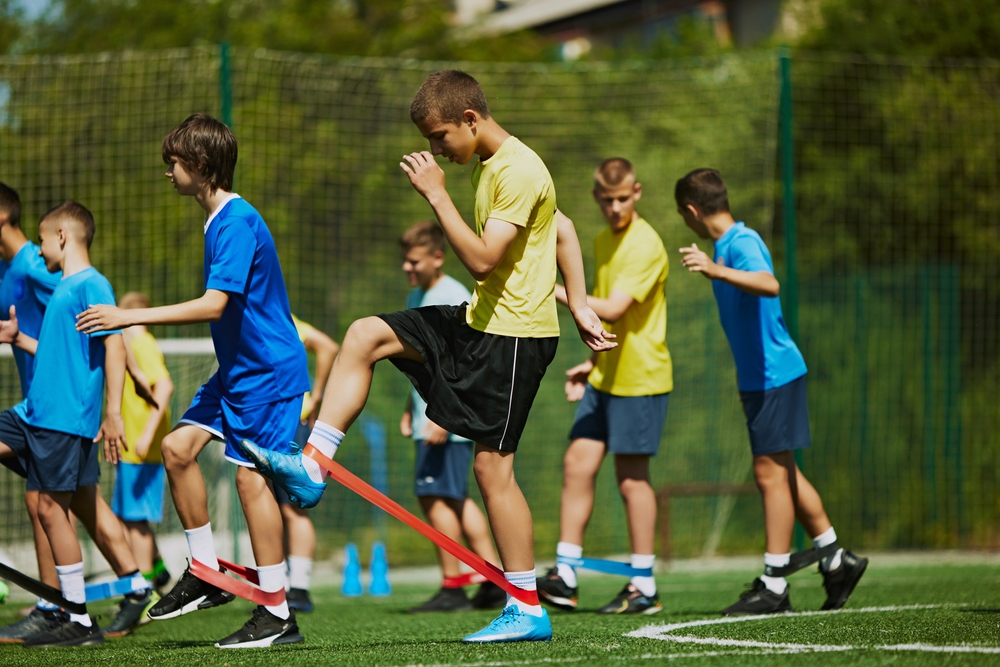Developing self-discipline and leadership abilities, learning how to stay focused, and supporting good health are just a few of the benefits that sports participation offers young athletes.
The Physical Health Benefits of Youth Sports Participation
Anytime sports are part of a child’s routine, they can play an important part in supporting their health. Some of the benefits of participating in sports include:
- Keeps children motivated and physically active.
- Sports support cardiovascular health.
- Supports heart and lung health and cardiometabolic health.
- Raises the child’s metabolism.
- The sport produces stronger bones, ligaments, tendons, and muscles.
- Promotes brain health.
- Improves mobility.
- Develops better hand-eye coordination.
- Helps burn calories, which supports maintaining and controlling weight, which can help prevent obesity.
- Improves quality of sleep.
- Promotes long-term health.
- Lowers the risk of future disease and illness.
Youth Sports as a Tool for Academic and Life Success
Children experiencing the benefits of participating in a sports activity are not only supporting and improving their physical health but also their mental health.
With improved levels of health, children are more apt to stay engaged in their classes at school. Good health also helps children retain the information shared in class and stay focused while studying.
Building Discipline, Focus, and Leadership in Young Athletes
Being involved in sports comes with a variety of lessons that must be understood and followed in order to be part of the team. Youth sports teach children these important skills, which include self-discipline, better concentration, social skills, commitment to others, focus, responsibility, and how to manage their time.
Children of all ages who are active in sports and have had access to a consistent regimen of positive input from their coach will have these skills to guide them throughout their lifetime.
How Positive Role Models in Sports Shape Youth Development
Youths with access to positive role models in sports have the additional benefit of learning about leadership directly from their coach.
Leadership is learned by watching and observing the actions and interactions of others. In sports, children look to their coach(s) for guidance on what, when, where, and how to achieve a goal.
Whether the child is interacting directly with their coach, observing other sports figures in person, on the field, on TV, on the computer, or reading about a role model, the athlete is aware of the role model’s behavior in different situations. The behavior may be how the coach interacts with other team members, for example.
Young athletes learn by observing, and their role models can help them establish and fine-tune positive development they can rely on for future success. A role model’s input and presence are crucial components in youth development. Some of the ways a sports role helps with physical and mental development include:
- Overcoming Challenges – The role model can help athletes learn how to work through and overcome challenges and negative situations, such as an injury or not making the team they may face. Athletes learn from role models to never give up on themselves or their goals.
- Goals – Role models can help athletes by encouraging them to set goals to pursue additional activities that will benefit them physically and mentally.
- Empathy and Respect – A sports event can be emotional for the winning team as well as the losing team. Good sportsmanship is important for all athletes. A sports role model teaches athletes how to interact with empathy and respect towards their opponents, officials, teammates, coaches, news media, and fans.
- Life Lessons – Participating in sports requires dedication, perseverance, hard work, commitment, teamwork, and resilience. Role models are in the position of directly teaching and encouraging athletes to follow these life lessons.
- Inspiration – Role models serve as an inspiration to motivate children who may not be involved with sports to sign up to become part of a team.
- Diversity – Role models can show current team members and potential team players by demonstrating that everyone can participate in sports.
- Health – Good health is important for athletes, and role models help them develop and maintain a routine of healthy habits.
Contact Us
Contact us to find out more about Pari Livermore’s support of youth athletics and how she serves young athletes through fundraising events and scholarship programs.
